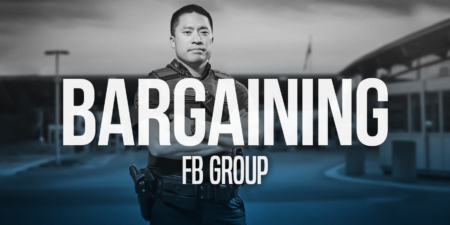Like you, we are all CBSA employees. Together, we have over 100 years of diligent service with the federal government. We care deeply about the work that we do, and we care about our coworkers. That’s why we got involved in the union in the first place, and that’s why we’re reaching out to you today about the most important decision we’ll all need to make this round of bargaining.
For over two years, we’ve been in negotiations for a new collective agreement with Treasury Board and CBSA. In the middle of negotiations, Canada and the rest of the world were engulfed by the COVID-19 pandemic. We – PSAC-CIU members at CBSA – have been on the front lines of that pandemic every single day, putting our health at risk to keep Canadians safe and our borders secure. From Programs Officers interpreting Orders in Council and Inland Enforcement Officers conducting removals to BSOs inspecting PPE and everyone in between, we’ve all played a critical part in protecting Canadians.
The importance of our work is undeniable. Public Safety Minister Bill Blair has publicly recognized our work during the pandemic on more than one occasion, while CBSA has frequently commended the work that we do to keep our borders secure.
Unfortunately, this praise seems to simply be empty words, because we haven’t seen that same recognition at the bargaining table.
When we make the case that we deserve parity with other hard-working law enforcement personnel across Canada – from wages to paid meal periods to issues related to firearms and other tools – we are told no. When we raise the dire need for pension reform at CBSA, we see no movement whatsoever from the employer. And with respect to our non-uniformed colleagues, who have been faithfully serving Canadians while working remotely throughout the pandemic, the employer still refuses to negotiate telework provisions into our collective agreement.
We’re also grappling with a toxic workplace at CBSA where we all work under the constant threat of heavy-handed discipline and abuse of authority. That’s why we need new protections in the context of discipline, harassment and whistleblowing in our collective agreement, but our proposals to protect employees have been denied.
Instead, CBSA is pushing for concessions – introducing a 48-hour shift change notice clause (instead of the current seven days), massive changes to scheduling and VSSA protections and changes to family care leave that would make it inaccessible to most of us and at the discretion of managers
The employer wants our jobs to matter more than our families when all they do is treat us like we’re all replaceable. We can’t stand for that, and we believe it’s time to make our stand.
Last month, we made our submissions to the Public Interest Commission, and they’ll provide their recommendations on our outstanding bargaining demands.
➡️ Read the full PIC submission
In the meantime, we’re fed up with the disrespect we’re all being shown by CBSA and the government, and we need to show them we’re ready to stand up to them to get the contract we deserve.
That’s why we – along with the PSAC National President and the CIU National Executive – have made the decision to conduct a vote to seek a strike mandate from the membership.
We’re asking you to vote YES to a strike mandate so that we can send a clear message to CBSA. Your support will give our bargaining team the leverage we need to call a strike if necessary.
Over the next few weeks, we’ll be giving you all the details you need about the process, how you can stay informed and take part in the vote. But we wanted to be the first to tell you – directly from the bargaining team – that this is our time to make real and meaningful changes at CBSA.
Stay tuned for more updates. If have any questions, please be sure to follow up with your CIU
Branch President or contact your local PSAC regional office.
We hope you’ll stand in solidarity with us and all CBSA staff so that we can reach a fair agreement with CBSA and Treasury Board. We’re all in this together.
Sincerely,
Jonathan Ross
Newfoundland/Labrador
St. John’s Airport
Joey Dunphy
New Brunswick
Edmunston POE
Claude Bouchard
Quebec Eastern Townships
St Armand POE
Ken Turner
Windsor Ontario
Ambassador Bridge
Frances Baroutoglou
Toronto Postal Operations
Charles Khoury
Headquarters – Ottawa
Mat Ashworth
Northern Ontario
Rainy River POE
Michael Aessie
Manitoba
Commercial office
Leanne Hughes
British Columbia
Victoria Airport
Related content
This article has also been posted on the PSAC website.




